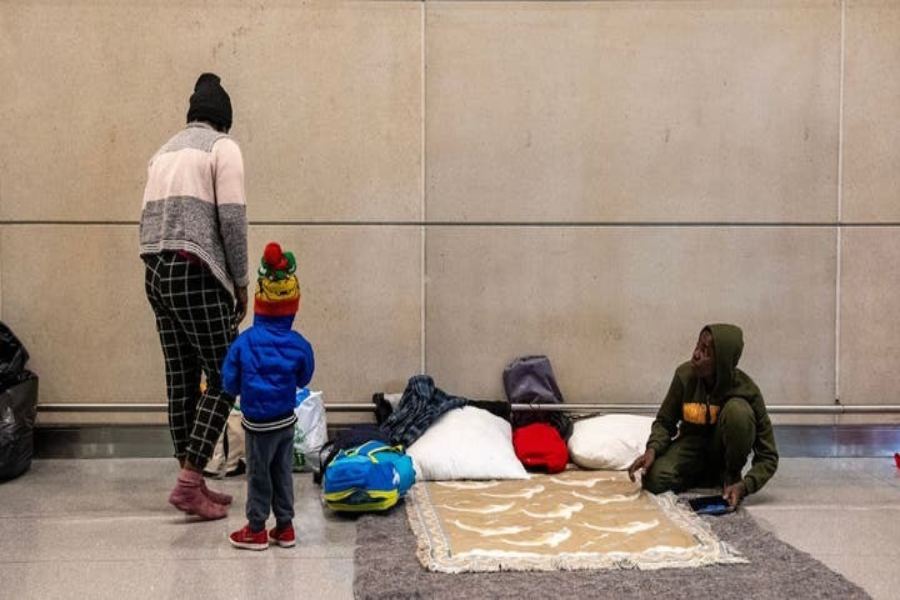
Norfolk, Massachusetts, typically known for its serene suburban lifestyle, is now embroiled in a heated debate that has disrupted the community’s peace. The state’s recent decision to repurpose the dormant Bay State Correctional Center into a shelter for migrants and homeless individuals has ignited a firestorm of opposition from residents.
The facility, which had been inactive, is suddenly at the forefront of a contentious plan that caught the town unprepared. Many residents express a sense of betrayal, feeling that the state’s move to convert the former minimum-security prison without sufficient public consultation represents a significant oversight in governance. This sentiment is compounded by the facility’s proximity to residential areas, intensifying local concerns about safety, property values, and the character of their community.
The lack of prior dialogue has not only sown seeds of mistrust between Norfolk citizens and state officials. Still, it has also sparked a broader conversation about transparency and community involvement in governmental decisions directly affecting local populations. As the plans progress, the town remains a focal point of debate, reflecting broader national tensions over immigration and social services integration.
Plans for the Migrant Shelter
The planned migrant shelter at the former Bay State Correctional Center is poised to serve as a crucial interim solution for the housing crisis facing numerous migrants and homeless individuals presently stationed at Boston’s Logan International Airport. Scheduled to commence operations next month, this facility is strategically located on the expansive grounds of the Massachusetts Correctional Institution. This strategic choice leverages existing infrastructure to address immediate housing needs efficiently.
As outlined by the Governor’s office, the shelter’s primary mission is to function as a “temporary safety-net site” tailored explicitly for families caught in homelessness. This initiative is part of a broader state effort to provide stable environments for those transitioning towards more permanent living situations. A robust monthly recertification system is essential to the shelter’s operational model. This process is designed to ensure that all residents actively participate in programs to secure employment and find long-term housing, thus fostering a proactive approach to reintegration into the community.
Moreover, this facility is not just about providing a roof over heads but also about laying down a pathway to self-sufficiency for vulnerable populations. By incorporating structured support systems and clear goals for residents, the shelter aims to equip individuals and families with the necessary tools to rebuild their lives in a dignified and supported manner. The anticipation of these plans brings a beacon of hope for many, signaling a significant step forward in tackling the challenges associated with homelessness and migration.
However, the local community has not well-received the state’s plans. During a tense special Select Board meeting, approximately 300 Norfolk residents voiced their concerns about the potential impacts on local services such as schools, police, and emergency services. A vocal opponent of the shelter, John Semas, shared a sentiment among the attendees: “Let’s face it, we don’t want it here. It doesn’t make us bad people, it doesn’t make me not compassionate, it doesn’t make me a bad father.”
Communication Gaps and Official Responses
The meeting highlighted a significant communication gap between the state and the Norfolk community. Many, including Select Board Chair Jim Lehan, learned about the plans through social media rather than direct communication from the state. This lack of upfront partnership has left many feeling disregarded and frustrated. “It would have been nice to partner at the front end to understand their plans,” Lehan noted. Governor Maura Healey, currently at a climate change conference at the Vatican, has faced criticism for her absence during this critical local issue. Last summer, she declared a state of emergency over the migrant surge, a decision that has since placed considerable strain on state resources and now impacts local communities like Norfolk.
Despite the opposition, there are voices within Norfolk that support the initiative. Lucy Bullock-Sieger, a resident advocating for the shelter, emphasized the humanitarian aspect: “I can’t imagine being the mom of young children and trying to find a better life. Norfolk is not a town of fear.”
The facility, which can accommodate approximately 140 families, is reported to be in good condition. It features essential amenities such as showers, bathrooms, a cafeteria, and a gymnasium. Plans also include setting up play areas for children and classroom spaces for adults to learn English and receive job training.
However, concerns persist about the financial burden on Norfolk, a town with limited resources. Resident Lauren Vives highlighted the strain the shelter could place on the town’s infrastructure: “The proposition to increase our town’s population by 4% overnight is preposterous. It shows a lack of respect for the town.”
As the shelter’s opening approaches, Governor Healey’s office has promised to hold a community meeting to address questions and potentially smooth tensions by engaging with residents. The meeting aims to connect community members interested in providing sports, arts, and music programming for children at the shelter.
The unfolding situation in Norfolk serves as a microcosm of broader national issues surrounding immigration and local governance. While the state sees the shelter as necessary to manage the migrant crisis responsibly, the immediate impact on Norfolk’s community fabric and resources has ignited a debate that resonates with the complex interplay of compassion, governance, and community autonomy. As this small town grapples with these big issues, the eyes of the state and perhaps the nation will be watching, waiting to see how this microcosm resolves into a conflict or cooperation model.




















